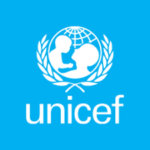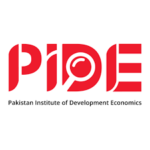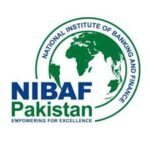JPA is a relatively new organization based in Quetta but have completed six (6) very policy relevant research projects through engagement with various government departments in Balochistan in its’ very first two years of incorporation with SECP.


This study mapped children’s home languages across Balochistan, analyzed teaching practices, and evaluated Teaching and Learning Materials (TLM) concerning the Language of Instruction (LoI). The findings informed an evidence-based School Language Policy to enhance learning outcomes. Objectives included: (i) mapping languages spoken at home and their integration as instructional languages or subjects, (ii) analyzing the linguistic context and proficiency of teachers and students, and (iii) identifying practical components for policy formulation. Deliverables comprised a comprehensive research report, stakeholder workshops, and a final presentation to UNICEF and the Secondary Education Department. The study, executed under a Joint Project Contract between JPC and SOCIETY, employed quantitative and qualitative tools to produce actionable insights for policy development.
Research for Improving Education Systems in Balochistan


JPC won RISE research grant 14th December, 2021 as Small Grants to Pilot RISE Education Systems Diagnostic under the Building State Capability Center for International Development of Harvard University. RISE Research programme seeks to understand how systems of education can overcome the learning crisis in developing countries. Among an extremely competitive pool, our research proposal and research team stood out as exceptionally strong, and Building State Capability Center of Harvard University were delighted to fund your proposal to pilot the RISE Education Systems Diagnostic Framework in the province of Balochistan.
As part of dissemination of project results, JPC & VERSO teams also wrote a blog which was posted at the website of RISE which can be accessed here https://riseprogramme.org/about-rise. Similarly, JPC & VERSO team also published a detailed report on the website of Lahore University of Management Sciences in Pakistan which can be accessed here https://mhrc.lums.edu.pk/education-pain-points-in-balochistan-insights-from-the-rise-diagnostic-framework/.
Political Economy of School Education in Post-18th Amendment Period


The research project examined and assess the impact of the decentralization introduced by the 18th Constitutional Amendment on education service delivery in Balochistan. Taking a case study approach of the education sector in Balochistan, this project examines if progress has been made against some of the core objectives. This study assessed if decentralized public management of education has resulted in improvements in school education planning and management, implementation, monitoring, financing, transparency and governance in Balochistan. The findings of the study will be useful for policy-makers, practitioners and designers of public sector reforms.
The project used education related data secondary data on budget, laws, rules & regulations and learning indicators in the province of Balochistan over the last two decades to cover both pre and post 18th amendment periods. The project also conducted KIIs and FGDs for qualitative assessment of accountability failure in education system in Baluchistan. The research study used the Political Settlement Theory as a framework to understand the deeper causes of learning crisis in public sector education in Balochistan. The research output can be accessed at RASTA website through the link https://rasta.pide.org.pk/cgp/decentralization-and-public-service-delivery-a-case-study-of-education-sector-in-balochistan/
Survey of Informal Border Crossings along Pakistan’s western border in Khyber Pakhtunkhwa and Balochistan provinces


JPC concluded a research study on the survey of Informal Border Crossings along Pakistan’s western border in Khyber Pakhtunkhwa and Balochistan provinces. The study relied on both primary and secondary data sources to identify and conduct a situation analysis of the various informal border crossing points along Pakistan’s western border. The data from primary and secondary sources was used to develop Border Crossing Point (BCP) prioritization scorecards. These scorecards were assigned weights to different parameters required for making a border crossing viable. Notable parameters included state of connectivity of each border crossing, existence of population on both sides, state of access to basic public services and utilities, potential for trade and distance from nearest border crossing point. The scorecards helped in prioritizing the relatively viable and mature border crossing points.
Mapping sludge in the functioning of various government departments


JPC won a research grant from PIDE under its sludge series initiative which tries to understand sludge in the functioning of various government departments with special focus on the vital service delivery initiatives. PIDE is doing SLUDGE series in all major cities of Pakistan and JPC is their partner organization for Balochistan province.
JPC conducted sludge analysis for 10 service delivery initiatives and delivered the final technical reports.
Training Module for Green Financing in Pakistan for the mid-level professionals at commercial bank


Trainings organized under the european union funded project titled “international labour and Environmental standards application in pakistan’s smes (ILES)” being implemented by WWF-Pakistan and international labour organization (ILO). The ILES project aims at contributing to improved environmental sustainability and livelihoods in Pakistan by supporting sustainable Economic growth and development.




